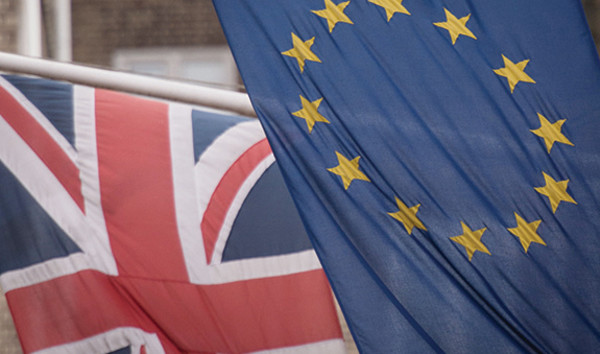

Advisers who believe Brexit is not important for investors are doing their clients a disservice, according to the manager of the £2.1bn Investec UK Alpha fund.
Simon Brazier said the prospect of the UK leaving the European Union was having a real impact on the UK economy, and a recession was "potentially" imminent, despite claims the political disruption was just “noise” to be ignored and that investors should focus instead on “fundamentals.”
In a note sent out to investors yesterday (10 June) Mr Brazier stated: “Brexit does have a real effect on the real economy here in the UK.
"Every company I meet has concerns around Brexit because of mainly the uncertainty and we still do not know whether we are having a transition period and where we are going to be moving to with the customs union.
"It’s so much uncertainty two years on and the reality is that business investment in the UK is at all-time lows and many companies that I speak to are making decisions to invest outside the UK. So it does have a real effect on the real economy.”
He added: “When you have got forecast GDP growth of just over a percent, the majority of GDP growth comes from the consumer and the consumer today has a savings ratio of only 2 per cent - if you exclude pension contributions from government and corporates - and the forecast for consumption growth on the basis that the savings ratio goes down to less than 1 per cent. So consumers are spending everything that they earn.”
He said the biggest worry for investors should be that policy makers in the UK no longer have the tools to boost the economy if a recession does hit.
For instance, a traditional response to a sharp decline in economic growth might be for the Bank of England to cut interest rates, but at 0.5 per cent interest rates are already near record lows.
Governments might also respond to a decline in the rate of economic growth by increasing public spending, but the size of the government’s current debt may mean this could not be an option in times of crisis.
But Guy Stephens, technical investment director at wealth manager Rowan Dartington, disagrees. He said the best thing advisers can do is monitor the specific investments they have made, rather than worry about political outcomes.
He said the current proposal from Prime Minister Theresa May on how the UK will leave the EU is “likely to be welcomed” by UK business, and this is why reaction from the markets to the present political turmoil has been muted, it was therefore not very relevant to investors.
David Scott, who works at advice firm Andrews Gwynne in Leeds, disagreed.
He said :”Britain’s decision to leave the European Union has sparked a dramatic fall in the number of French, Dutch and Belgian businesses registering in the UK, in a further illustration of Brexit’s impact on the UK economy."
Citing figures from Companies House, he said French companies registered 48 per cent fewer businesses in the UK in 2016-17 than in the previous financial year while companies in Belgium registered 38 per cent fewer.
Companies in the Netherlands, which he said was probably the worst affected by Brexit of Britain’s trading partners, registered 52 per cent fewer companies last year than in 2015-16.
Mr Gwynne said: "The collapse in company registrations mirrors the reluctance of foreign companies to invest in the UK either by building new factories or buying UK businesses.
"OECD figures show that foreign direct investment into the UK tumbled in 2017 by 90 per cent following a bumper year in 2016.
"The number of companies across the North falling into administration outpaced the rest of England and Wales during the first quarter of 2018 as fragile consumer confidence, rising costs and ongoing political and economic uncertainty conspired to increase the pressure on several sectors.”
david.thorpe@ft.com



